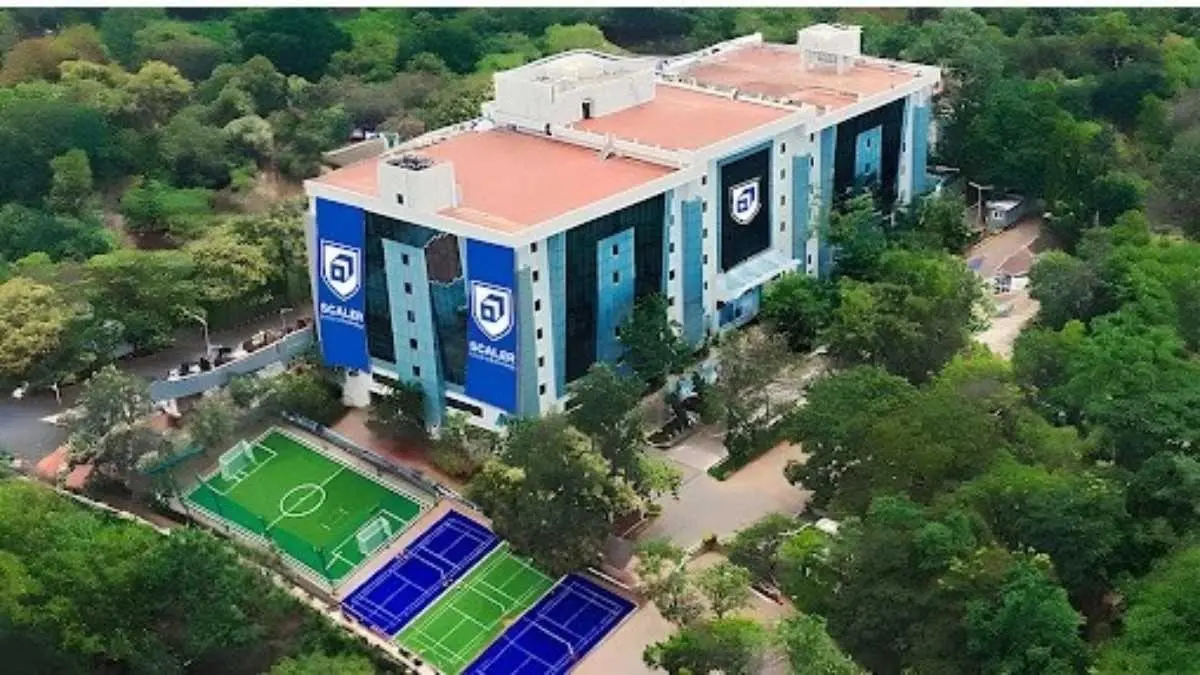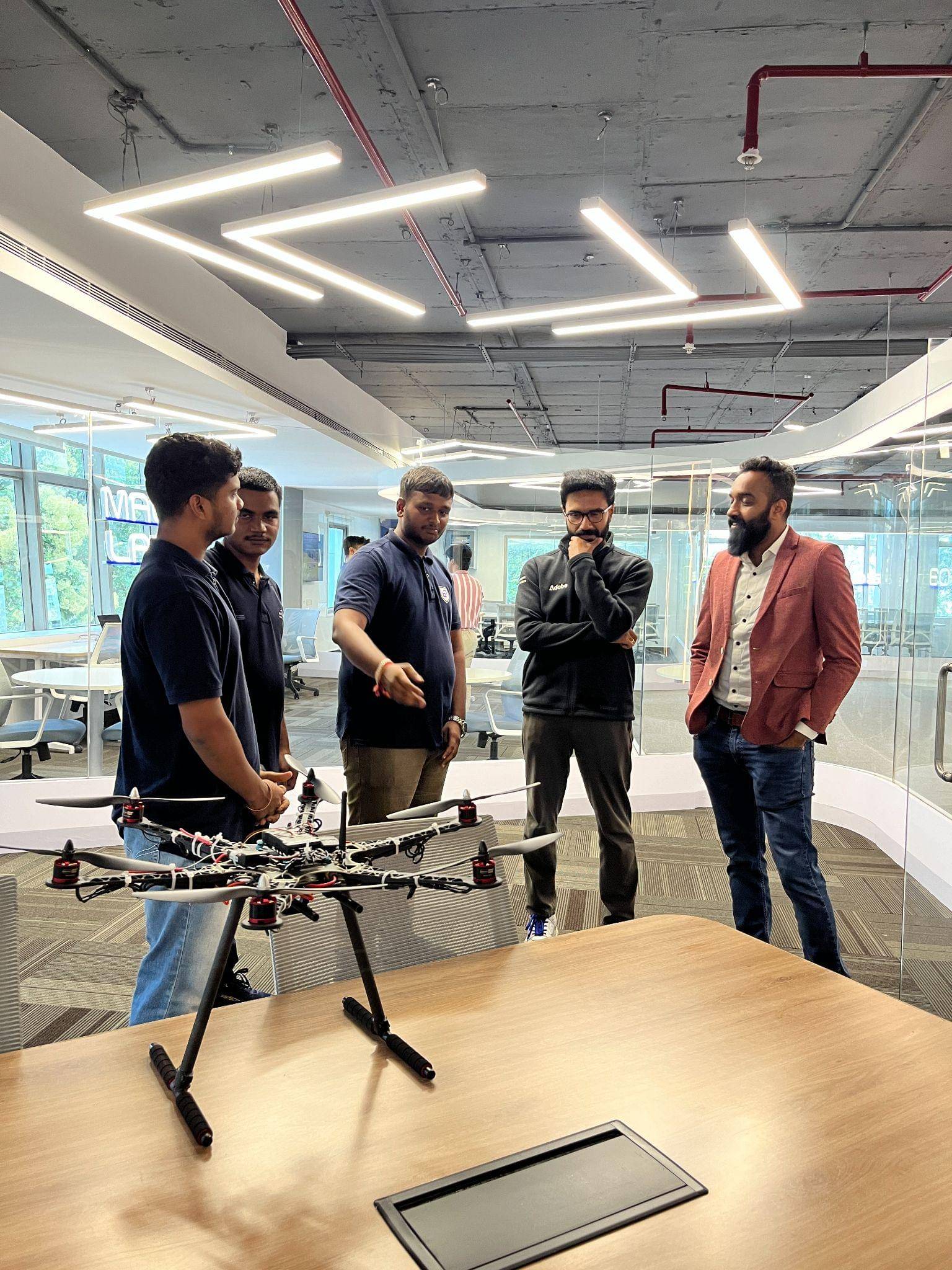Updated 24 April 2025 at 22:10 IST
Scaler School of Technology: An Urban Campus in the Heart of Tech
At Scaler School of Technology, we’ve intentionally taken a different approach—one that challenges the usual playbook.
- Initiatives News
- 4 min read

Higher education tends to lean heavily on tradition. Often, the prestige of an institution lies more in its history than in how well it keeps up with change.
At Scaler School of Technology, we’ve intentionally taken a different approach—one that challenges the usual playbook. One of the boldest and most defining steps we've taken?
Establishing our campus right in the thick of the tech ecosystem, not on its edge.
The typical engineering or computer science college is set on a sprawling campus, far removed from the noise and motion of the cities. It’s quiet; it’s expansive—but you should remember it’s also detached.
Advertisement
This kind of setting can form a bubble, which might sound quite exciting at first; however, it’s basically cutting students off from the very industry they’re preparing to enter. To us, that felt like a missed chance to bridge classroom learning with real-world relevance.
So we did the opposite—we set up shop in the centre of Bengaluru, India’s own Silicon Valley.
Advertisement
The reason? Proximity makes a difference. In a field that changes by the minute, learning in isolation simply isn’t enough. Students thrive when they’re surrounded by the humdrum of start-ups, innovation labs, fast-growing unicorns, and the minds behind tomorrow’s breakthroughs.
And it’s more than geography—it’s about mindset, energy, and connection.

Here, walking out of class doesn’t mean heading into a secluded quad—it means stepping into a city alive with innovation. Students aren’t just hearing about the latest trends—they’re living them. They’re dropping into tech meetups, having spontaneous chats with seasoned engineers over coffee, shadowing product managers, and diving into part-time gigs with companies pushing boundaries. That kind of immersion is only possible when you’re in the thick of it—not two hours away (talk about Bengaluru traffic, phew!).
This reflects Scaler’s core philosophy: education should be driven by results, not just rituals. We’re not interested in helping students stockpile credits. We’re here to help them build capabilities, launch projects, and grow professional networks that stand the test of time. And there’s no better way to do that than by being surrounded by the real thing every single day.
We’ve already seen students launching ventures while still attending classes—some securing early funding thanks to the guidance of mentors within arm’s reach. Others land internships just by being present—striking up a conversation at a local talk or showing up to a weekend hackathon. Students have already built apps such as BuildmyNotes, which uses AI to convert recorded lectures into study notes; Scaler Companion, wherein they built a mock interview system using AI; and a virtual teaching assistant that helps students with doubts without using a human. When your environment is filled with doers, builders, and visionaries, your own goals begin to shift. You start thinking bigger. Acting faster. And that’s what SST aims to foster among these young, aspiring computer science professionals.
There’s also the richness of diversity—not just in ideas or technologies, but in people. In a city like Bengaluru, our students meet creatives, coders, marketers, and designers—all part of the product-building journey. Our super mentor sessions with famous industry leaders like Amod Malviya (ex-CTO, Flipkart), Bhavin Turakhia (founder, Zeta), Rajan Anandan (ex-MD, Google), and the like also provide direct insight into the workings of the industry we are preparing our students for. They collaborate across domains, understanding that building something real involves more than code. It’s about the full picture: vision, execution, and experience. That kind of exposure is tough to recreate in an isolated campus, and it’s exactly what modern employers are searching for.
Let’s face it—this generation isn’t here to wait. They’re not content with years of theory before they get their hands on a real-world challenge. They want to make, solve, and grow—right now. Being part of a vibrant, urban tech scene makes that possible. That’s not to say traditional campuses don’t serve a purpose. But we’re catering to a different kind of learner—someone who’s itching to build, not just study from the books. Someone who wants everyday access to the pulse of the industry, not just a recruitment fair at the end of the course. Our urban-first model isn’t a novelty—it’s an intentional strategy. One that eliminates the gap between learning and doing.
At Scaler School of Technology, we’re placing education right where it belongs: at the intersection of curiosity and creation. And to get there, our students don’t need to plan a commute—they just need to step outside.
Published By : Radhika Dhawad
Published On: 22 April 2025 at 17:24 IST
